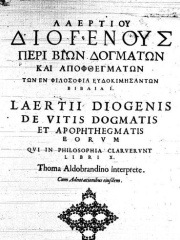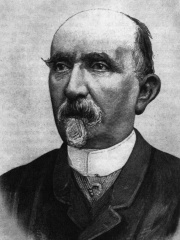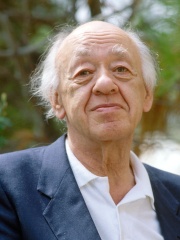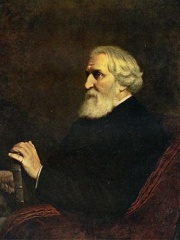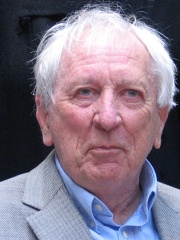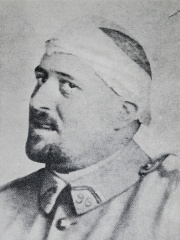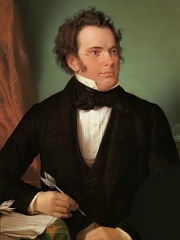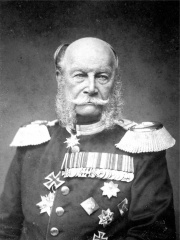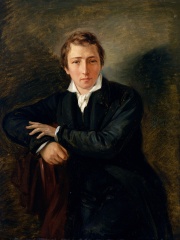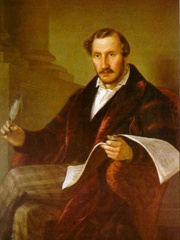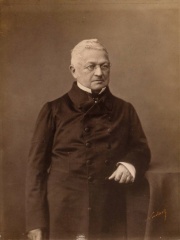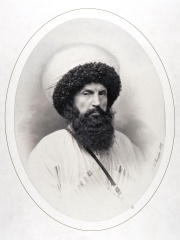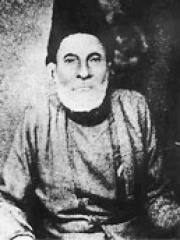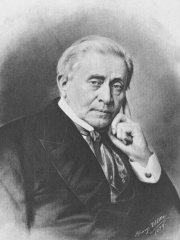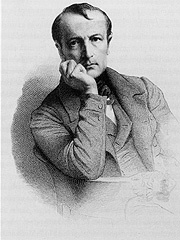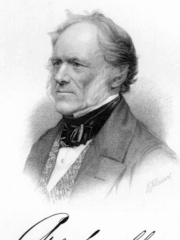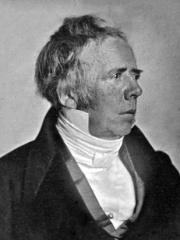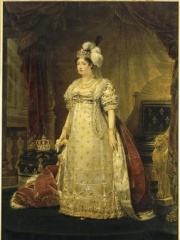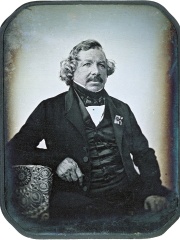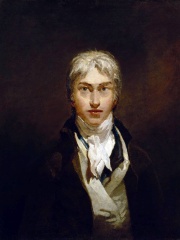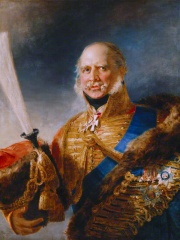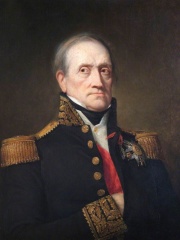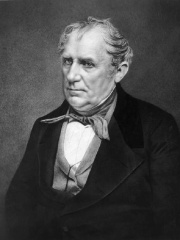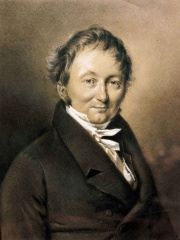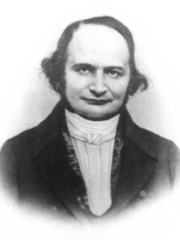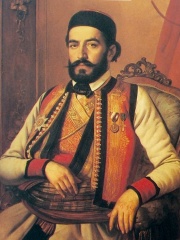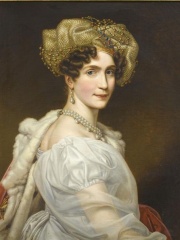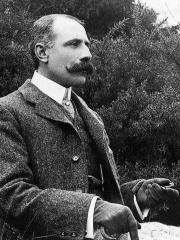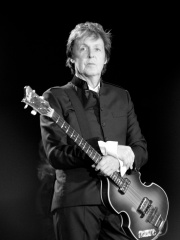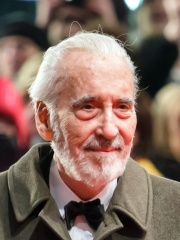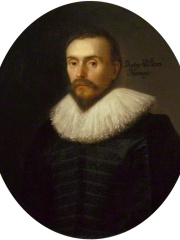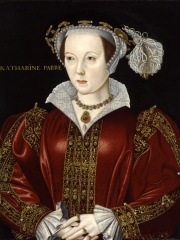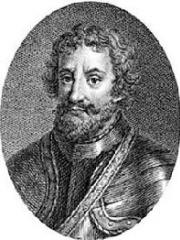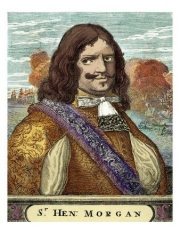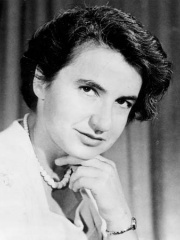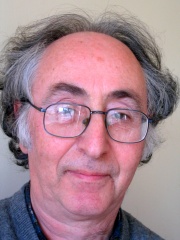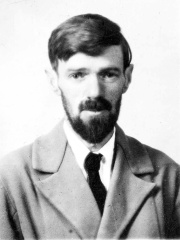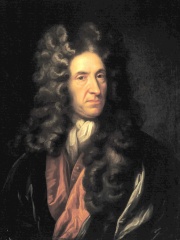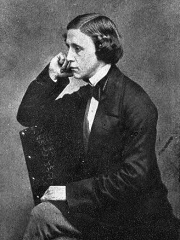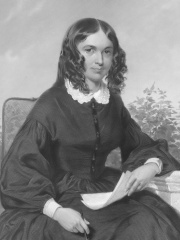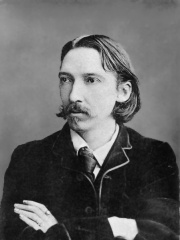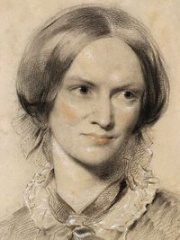WRITER
Mary Shelley
1797 - 1851
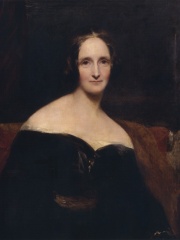
 Mary Shelley
Mary Shelley
Mary Wollstonecraft Shelley (née Godwin; 30 August 1797 – 1 February 1851) was an English novelist who wrote the Gothic novel Frankenstein; or, The Modern Prometheus (1818), which is considered an early example of science fiction. She also edited and promoted the works of her husband, the Romantic poet and philosopher Percy Bysshe Shelley. Her father was the political philosopher William Godwin and her mother was the philosopher and women's rights advocate Mary Wollstonecraft. Mary's mother died 11 days after giving birth to her. Read more on Wikipedia
Her biography is available in 103 different languages on Wikipedia (up from 102 in 2024). Mary Shelley is the 156th most popular writer (down from 140th in 2024), the 137th most popular biography from United Kingdom (down from 86th in 2019) and the 14th most popular British Writer.
Mary Shelley is most famous for her novel Frankenstein.
Memorability Metrics
Page views of Mary Shelley by language
Among WRITERS
Among writers, Mary Shelley ranks 156 out of 7,302. Before her are Diogenes Laërtius, Emily Brontë, Carlo Collodi, Plautus, Yasunari Kawabata, and H. P. Lovecraft. After her are Samuel Beckett, Eugène Ionesco, Ivan Turgenev, Henryk Sienkiewicz, Tomas Tranströmer, and Guillaume Apollinaire.
Most Popular Writers in Wikipedia
Go to all RankingsDiogenes Laërtius
180 - 240
HPI: 79.75
Rank: 150
Emily Brontë
1818 - 1848
HPI: 79.72
Rank: 151
Carlo Collodi
1826 - 1890
HPI: 79.68
Rank: 152
Plautus
254 BC - 184 BC
HPI: 79.62
Rank: 153
Yasunari Kawabata
1899 - 1972
HPI: 79.61
Rank: 154
H. P. Lovecraft
1890 - 1937
HPI: 79.50
Rank: 155
Mary Shelley
1797 - 1851
HPI: 79.46
Rank: 156
Samuel Beckett
1906 - 1989
HPI: 79.46
Rank: 157
Eugène Ionesco
1909 - 1994
HPI: 79.45
Rank: 158
Ivan Turgenev
1818 - 1883
HPI: 79.43
Rank: 159
Henryk Sienkiewicz
1846 - 1916
HPI: 79.31
Rank: 160
Tomas Tranströmer
1931 - 2015
HPI: 79.26
Rank: 161
Guillaume Apollinaire
1880 - 1918
HPI: 79.26
Rank: 162
Contemporaries
Among people born in 1797, Mary Shelley ranks 5. Before her are Franz Schubert, William I, German Emperor, Heinrich Heine, and Gaetano Donizetti. After her are Adolphe Thiers, Hiroshige, Shamil, 3rd Imam of Dagestan, Ghalib, Joseph Henry, Paul Delaroche, and Charles Lyell. Among people deceased in 1851, Mary Shelley ranks 3. Before her are Hans Christian Ørsted, and Marie Thérèse of France. After her are Louis Daguerre, J. M. W. Turner, Ernest Augustus, King of Hanover, Jean-de-Dieu Soult, James Fenimore Cooper, Karl Drais, Carl Gustav Jacob Jacobi, Petar II Petrović-Njegoš, and Princess Augusta of Bavaria.
Others Born in 1797
Go to all RankingsFranz Schubert
COMPOSER
1797 - 1828
HPI: 87.80
Rank: 1
William I, German Emperor
POLITICIAN
1797 - 1888
HPI: 83.14
Rank: 2
Heinrich Heine
WRITER
1797 - 1856
HPI: 81.96
Rank: 3
Gaetano Donizetti
COMPOSER
1797 - 1848
HPI: 80.22
Rank: 4
Mary Shelley
WRITER
1797 - 1851
HPI: 79.46
Rank: 5
Adolphe Thiers
POLITICIAN
1797 - 1877
HPI: 75.69
Rank: 6
Hiroshige
ARTIST
1797 - 1858
HPI: 74.66
Rank: 7
Shamil, 3rd Imam of Dagestan
POLITICIAN
1797 - 1871
HPI: 74.41
Rank: 8
Ghalib
WRITER
1797 - 1869
HPI: 74.00
Rank: 9
Joseph Henry
PHYSICIST
1797 - 1878
HPI: 73.46
Rank: 10
Paul Delaroche
PAINTER
1797 - 1856
HPI: 73.15
Rank: 11
Charles Lyell
GEOLOGIST
1797 - 1875
HPI: 71.72
Rank: 12
Others Deceased in 1851
Go to all RankingsHans Christian Ørsted
PHYSICIST
1777 - 1851
HPI: 85.42
Rank: 1
Marie Thérèse of France
NOBLEMAN
1778 - 1851
HPI: 80.59
Rank: 2
Mary Shelley
WRITER
1797 - 1851
HPI: 79.46
Rank: 3
Louis Daguerre
INVENTOR
1787 - 1851
HPI: 79.44
Rank: 4
J. M. W. Turner
PAINTER
1775 - 1851
HPI: 79.11
Rank: 5
Ernest Augustus, King of Hanover
POLITICIAN
1771 - 1851
HPI: 77.97
Rank: 6
Jean-de-Dieu Soult
MILITARY PERSONNEL
1769 - 1851
HPI: 74.12
Rank: 7
James Fenimore Cooper
WRITER
1789 - 1851
HPI: 73.85
Rank: 8
Karl Drais
INVENTOR
1785 - 1851
HPI: 73.02
Rank: 9
Carl Gustav Jacob Jacobi
MATHEMATICIAN
1804 - 1851
HPI: 72.22
Rank: 10
Petar II Petrović-Njegoš
WRITER
1813 - 1851
HPI: 71.12
Rank: 11
Princess Augusta of Bavaria
NOBLEMAN
1788 - 1851
HPI: 70.30
Rank: 12
In United Kingdom
Among people born in United Kingdom, Mary Shelley ranks 137 out of 8,785. Before her are Edward Elgar (1857), Diana, Princess of Wales (1961), Henry VII of England (1457), Paul McCartney (1942), Alfred the Great (849), and Christopher Lee (1922). After her are William Harvey (1578), Catherine Parr (1512), Macbeth, King of Scotland (1005), Henry Morgan (1635), Rosalind Franklin (1920), and Brian Josephson (1940).
Others born in United Kingdom
Go to all RankingsEdward Elgar
COMPOSER
1857 - 1934
HPI: 79.61
Rank: 131
Diana, Princess of Wales
NOBLEMAN
1961 - 1997
HPI: 79.55
Rank: 132
Henry VII of England
POLITICIAN
1457 - 1509
HPI: 79.55
Rank: 133
Paul McCartney
MUSICIAN
1942 - Present
HPI: 79.53
Rank: 134
Alfred the Great
POLITICIAN
849 - 899
HPI: 79.51
Rank: 135
Christopher Lee
ACTOR
1922 - 2015
HPI: 79.50
Rank: 136
Mary Shelley
WRITER
1797 - 1851
HPI: 79.46
Rank: 137
William Harvey
PHYSICIAN
1578 - 1657
HPI: 79.40
Rank: 138
Catherine Parr
COMPANION
1512 - 1548
HPI: 79.40
Rank: 139
Macbeth, King of Scotland
POLITICIAN
1005 - 1057
HPI: 79.37
Rank: 140
Henry Morgan
PIRATE
1635 - 1688
HPI: 79.30
Rank: 141
Rosalind Franklin
BIOLOGIST
1920 - 1958
HPI: 79.24
Rank: 142
Brian Josephson
PHYSICIST
1940 - Present
HPI: 79.14
Rank: 143
Among WRITERS In United Kingdom
Among writers born in United Kingdom, Mary Shelley ranks 14. Before her are D. H. Lawrence (1885), Daniel Defoe (1660), Virginia Woolf (1882), Jane Austen (1775), Lewis Carroll (1832), and Emily Brontë (1818). After her are Elizabeth Barrett Browning (1806), Robert Louis Stevenson (1850), Walter Scott (1771), Anna Wintour (1949), John Milton (1608), and Charlotte Brontë (1816).
D. H. Lawrence
1885 - 1930
HPI: 82.80
Rank: 8
Daniel Defoe
1660 - 1731
HPI: 82.76
Rank: 9
Virginia Woolf
1882 - 1941
HPI: 81.81
Rank: 10
Jane Austen
1775 - 1817
HPI: 80.62
Rank: 11
Lewis Carroll
1832 - 1898
HPI: 80.04
Rank: 12
Emily Brontë
1818 - 1848
HPI: 79.72
Rank: 13
Mary Shelley
1797 - 1851
HPI: 79.46
Rank: 14
Elizabeth Barrett Browning
1806 - 1861
HPI: 79.12
Rank: 15
Robert Louis Stevenson
1850 - 1894
HPI: 79.06
Rank: 16
Walter Scott
1771 - 1832
HPI: 79.04
Rank: 17
Anna Wintour
1949 - Present
HPI: 78.83
Rank: 18
John Milton
1608 - 1674
HPI: 78.82
Rank: 19
Charlotte Brontë
1816 - 1855
HPI: 78.80
Rank: 20
